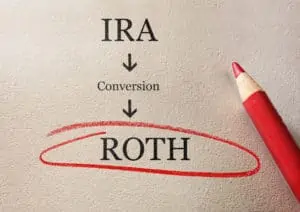You know the saying “If you love your job, you’ll never work a day in your life”? For many people, that’s such a true statement that they work almost up until the day they die. I have a friend like that, let’s call her Maggie. I have known Maggie for over 20 years. She is about my age, from Mansfield, a wonderful wife to my buddy Bobby, and she is a caring mother of two. Maggie is a driver and has such a passion for her career decorating homes that I can’t imagine her ever throwing in the towel and sitting back. Not everyone is lucky enough to have a career that gives them such satisfaction and while they may enjoy what they do, they are looking forward to retiring someday and living a life of well-earned leisure.
However, what we know is this. If a 2018 Gallup poll is any indication, for many folks, when they want to retire and when they actually retire, well, may be quite different. The survey asked Americans when they expected to retire, and 41% of those polled said they planned to retire at age 66 or older.
Hmmm . . . Here’s the problem: Most retirees don’t stay on the job that long.
In fact, the average retirement age among currently living retirees is about 60, and the most common age to retire was 62, according to data from the Federal Reserve. Forty-eight percent of workers polled by the Employee Benefit Research Institute (EBRI) said they expected to retire after age 65, but only about 19 percent of retirees actually stayed on the job until that age.
You see, often times people find that they have to retire before they anticipate because circumstances force their hand. Personal health issue or caregiving requirements for a spouse or loved one often impact one’s ability to work. Sometimes corporate restructuring and layoffs are to blame. Sadly, for the most part, it’s not because they’ve saved enough to retire early, but because they have no other alternative.
“Man plans and God laughs,” as the old saying goes. Folks, an unplanned retirement that happens years earlier than you’ve planned can have a significant impact on the quality of your retirement. But pivoting from saving for retirement to spending those dollars wisely earlier than you expect is manageable. You just need to understand your options in order to manage the resources you have.
The key is to approach this unexpected change in your life strategically and methodically. Avoid making rash decisions about investments, benefits, Social Security, and other issues without understanding their long-term repercussions, and without knowing what options you have. Let your head guide your decisions, not your gut.
An unexpected early retirement is one of the myriad reasons for you to have emergency savings on hand. Better to deplete a savings account intended for this particular purpose than to dip into your retirement investments any earlier than you have to. Experts generally recommend that you aim to have enough cash and liquid assets on hand to pay for six months’ worth of your expenses – mortgage, car payments, utilities, credit cards – whatever you need to make ends meet. That can give you time to find more work or to at least adjust your retirement income plan to suit your new circumstances better.
That retirement income plan should account for what assets you can draw from and when each source is available. Tally up Social Security benefits even if they’re reduced from what you had previously anticipated, as well as pensions, annuities, savings, and investment accounts.
Also, consider the duration of your retirement has suddenly changed, even though the availability and amount of your planned retirement funds have not. If you had prepared for a retirement of 20 years but find yourself at that mark five years early, you may need to readjust your lifestyle, downsize, or find additional work to meet your goals.
Paying for health care is often one of the most significant costs for retirees. It’s estimated that couples turning age 65 in 2019 will need $285,000 to pay for medical expenses through the course of their retirement, excluding long term care, according to Fidelity. If you find yourself out of work and no longer covered by your employer’s health insurance coverage, make sure to find the coverage you need.
Individuals age 65 or older generally qualify for health insurance through Medicare. Understand the difference between Medicare Part A – which covers hospital costs after you meet a deductible; Part B – which covers medical expenses and requires an annual premium; and Part D, for prescription drug coverage. Also, look into Medicare Advantage plans and supplemental insurance policies (sometimes referred to as Medigap policies) – programs offered by private insurance companies which supplement non-covered expenses.
Retirees younger than age 65 will need to find health insurance through other means, unless you can be covered under a working spouse’s employer plan. COBRA continuation through your former employer may provide you with continuity of coverage, but it usually quite expensive. You can shop for coverage through ACA health care exchanges (here in the Bay State that’s done through the Massachusetts Health Connector) – depending on your income, or shop for private insurance. One way or the other, though, you need coverage, since a severe illness or hospitalization could otherwise wipe out a retiree’s savings.
You are eligible to collect Social Security benefits at age 62, but you do not reach Full Retirement Age (FRA) – the age at which Social Security pays you 100% of your benefits – until you reach age 66-67, depending on the year of your birth. If you estimated full Social Security benefits as part of your retirement income strategy, you would need to recalculate those benefits based on the lower amount. You may need to offset the income difference using income generated by your retirement investments or consider other options that will enable you to delay taking Social Security benefits until you reach FRA.
For more and more Americans, early retirement doesn’t necessarily mean a full retirement. Sometimes it just signifies the sunset of one career and the sunrise of another. Many of us derive pleasure, self-esteem, and satisfaction from working and want to continue to do so in retirement or semi-retirement. Finding a new full-time gig may not be in the cards, and it may not be something you want to do. But continuing to earn income is a cornerstone of many retirees’ plans – and could even result in a new passion during your retirement years. So this may also be an opportunity to reinvent yourself or reimagine what you’d like to do.
If you find your retirement starting sooner than you planned, be sure to enlist the help of a qualified financial professional. They can guide you with an investment and retirement income strategy optimized for your needs. Both the investment and income strategies must work cohesively as one strategy. They must work together to effectively and efficiently manage downside risk and help preserve your capital throughout retirement.
Be vigilant and stay alert, because you deserve more.
Have a great week!
Jeff Cutter, CPA/PFS is President of Cutter Financial Group, LLC, an SEC
Registered Investment Advisor with offices in Falmouth, Duxbury, Mansfield & Southlake, TX. Jeff can be reached at jeff@cutterfinancialgroup.com.
This article is intended to provide general information. It is not intended to offer or deliver investment advice in any way. Information regarding investment services is provided solely to gain a better understanding of the subject or the article. Different types of investments involve varying degrees of risk. Therefore, it should not be assumed that future performance of any specific investment or investment strategy will be profitable. Market data and other cited or linked-to content in this article is based on generally-available information and is believed to be reliable. Cutter Financial does not guarantee the performance of any investment or the accuracy of the information contained in this article. Cutter Financial will provide all prospective clients with a copy of Cutter Financials Form ADV2A and applicable Form ADV 2Bs. Please contact us to request a free copy via .pdf or hardcopy. Insurance instruments offered through CutterInsure, Inc.



